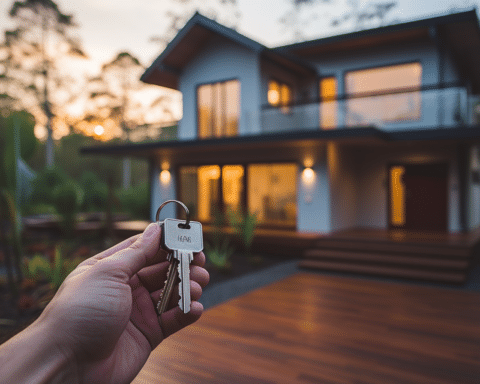Homeowners insurance is an important investment to protect your property, but buying too much coverage can be a waste of money.
It’s important to find the right balance between having enough coverage to avoid a financial disaster and not overpaying for unnecessary insurance. Here are some tips to help you avoid over-insuring your home.
Avoid Coverage Exceeding Your Property’s Actual Value
Homeowners with policy limits that are too high are overinsured and paying more for coverage than necessary. It’s important to have replacement value coverage for both your home and its contents.
However, policy limits should be high enough to pay to rebuild the house and replace its contents, not more. Insurers won’t pay more than the actual cost to rebuild or replace, so it’s important to get an accurate estimation of the rebuilding and replacement costs. Policy limits should not exceed the actual replacement cost, as it would be a waste of money.
Evaluate Your Deductible
Homeowners must decide how large they want their deductible to be when buying property insurance. The deductible is the money you pay out of pocket for a covered loss. Lower deductibles mean higher premiums, so it’s important to find a balance.
Homeowners need an affordable deductible that they can easily pay. Homeowners with a low deductible may be wasting money on more coverage than necessary. By opting for a policy with a higher deductible, you can achieve steady reductions in premiums. Money saved on premiums can be set aside in a special account to cover the higher deductible.
Avoid Unnecessary Add-Ons
Homeowners who have unnecessary riders on their insurance policies are overinsured. Riders are add-on coverage that may not be worth paying for. Examples of unnecessary riders include identity theft insurance with strong fraud protections already in place.
Homeowners should evaluate their insurance coverage annually to make sure they are only paying for necessary coverage. By doing so, they can avoid paying higher premiums for more insurance than they need.
Evaluate Your Risk
Another factor to consider when purchasing homeowners insurance is the location of your property. It’s important to avoid coverage for unlikely events or disasters that are not likely to occur in the property’s location.
For example, if you live in an area where hurricanes are rare, it may not be necessary to purchase additional hurricane coverage. It’s important to evaluate the risks and purchase coverage accordingly.
Evaluate Your Insurance Coverage
It is essential for every homeowner to evaluate their insurance coverage annually, to ensure that they are paying only for the risks they genuinely want the insurer to bear.
It’s important to have enough coverage to satisfy your mortgage lender’s requirements and fully protect your assets. But, buying too much coverage can be a waste of money. By finding the right balance, you can avoid overinsuring your home and save money on your premiums.
So, homeowners insurance coverage is an important investment to protect your property, but it’s important to find the right balance between having enough coverage and not overpaying for unnecessary insurance.
By avoiding coverage exceeding your property’s actual value, evaluating your deductible, avoiding unnecessary add-ons, and evaluating your risk, you can find the right coverage for your needs. Taking the time to evaluate your insurance coverage annually can help you avoid over-insuring your home and save money on your premiums.


